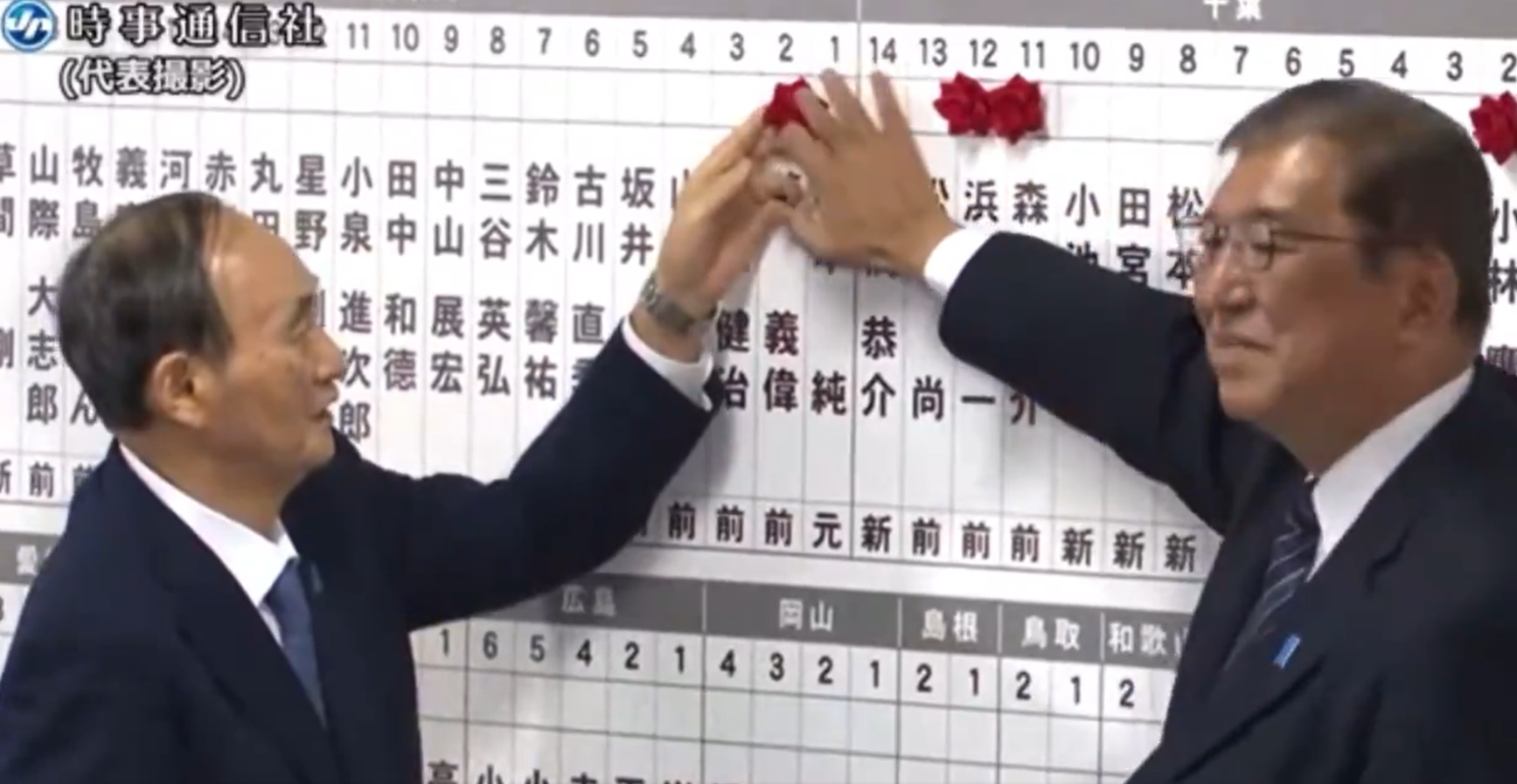Defeated in the polls, Ishiba seeks path to minority government
For the first time in 15 years, the Liberal Democratic Party lost its majority in parliament in Tokyo. The new premier paid the price for the party's slush fund scandals, which had already caused Kishida's popularity to plummet. Excluding an enlargement of the coalition, the opposition led by Yoshihiko Noda is trying to put up a united front with the centrists. For the first time, the Conservative Party, a xenophobic and revisionist force, will also enter the Diet.
Tokyo (AsiaNews/Agencies) - For the first time in 15 years, the Liberal Democratic Party (LDP) will not reach a majority of seats in the House of Representatives of the Tokyo parliament even together with its allied party Komeito. But despite this heavy defeat, Prime Minister Shigeru Ishiba declared today his intention to continue as Prime Minister of Japan, leading a minority government. ‘We cannot afford a political stalemate,’ Ishiba explained at a press conference at the LDP headquarters.
Ruling out the possibility of an enlargement of the current coalition, he expressed his intention to ‘adopt what needs to be adopted’ from the policies of opposition parties that have gained momentum, while promoting a cooperative relationship with them.
The numbers that came out of the polls are merciless for Ishiba, who had played the early election card after taking over on 1 October from resigning Prime Minister Fumio Kishida, who was overwhelmed by the crisis of consensus linked to the scandals over violations of funding rules by several LDP deputies and the economic crisis that the country has been experiencing for some time.
The seats of the coalition currently leading Japan fell abruptly from 288 to 215 (191 for the LDP and 24 for Komeito), i.e. 18 fewer than the 233 seats needed to obtain a majority. In contrast, the main opposition party, the Constitutional Democratic Party of Japan - a left-wing force now led by Yoshihiko Noda (who was premier for one year in 2012) - regained many seats, rising from 98 to 148.
The vote, however, also rewarded the People's Democratic Party (DPFP), a centrist force that saw its elected MPs increase from 7 to 28. It would be the politically closest formation to the current government coalition, but its leadership itself - hot on its heels - declared that it was unwilling to support the Ishiba government.
For his part, moreover, Noda has already convened a meeting tomorrow with representatives of the DPFP and Ishin (another centrist force that won 38 seats) with the aim of forming a common opposition front. Even this bloc would not have a majority in parliament, but could still count on just one seat less than the coalition led by the LDP; even if the distances between the political forces in question are actually marked.
Finally, it should be noted that for the first time the Conservative Party of Japan, an ultranationalist force that is openly xenophobic and prone to revisionist rhetoric on the country's history, will enter the Japanese parliament with three seats. Its entry into the Diet will give it the prerogatives of national parties, which it could not access until now.
Ishiba described the election result as ‘harsh’ and promised to radically reform her party to restore voter confidence, shaken by the slush fund scandal. He called for unity from the LDP: ‘We have failed to address people's suspicion, distrust and anger over the non-declaration of political funds and the issue of money in politics,’ Ishiba admitted.
In the uncertain political phase that now opens in Tokyo, the law stipulates that within 30 days of the lower house elections, a special parliamentary session will be convened to elect the next premier. According to sources close to Ishiba quoted by the Kyodo news agency, the government would be willing to set this date for 11 November.







.png)










